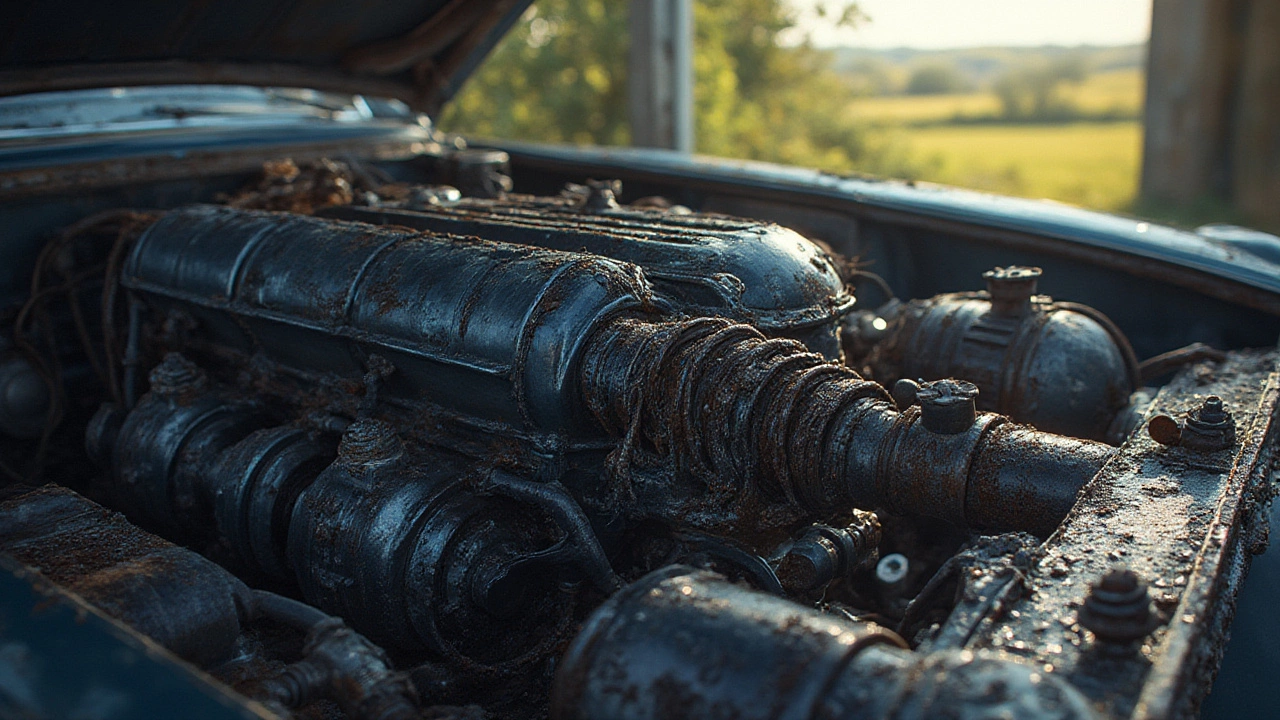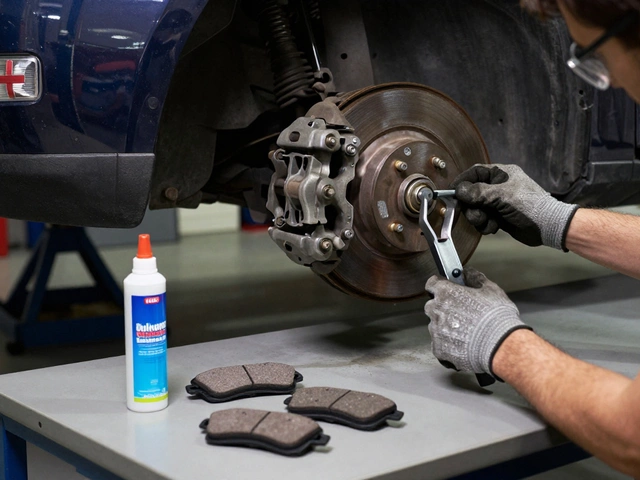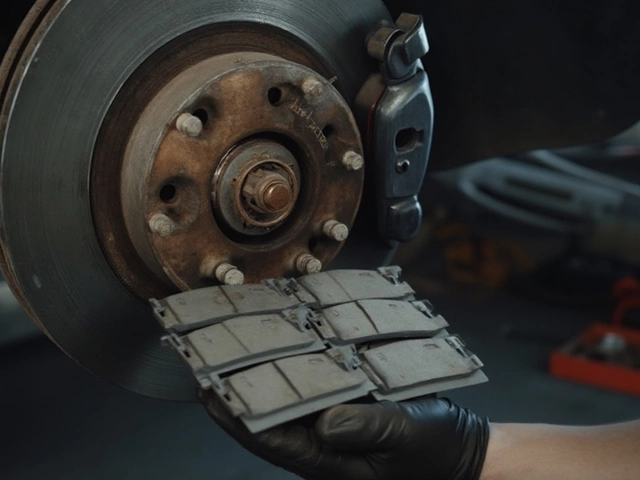You might have that little sticker on your windshield quietly nagging you every time you start your car. Maybe your friend’s uncle swears he hasn’t done an oil change in over 25,000 miles. You know you’re overdue, but is it really a big deal? What actually happens if you drive way past the deadline? Here’s the cold, greasy truth about missing oil changes—and why your engine might be a ticking time bomb when you keep rolling the dice.
What Happens Inside Your Engine When You Skip an Oil Change
Let’s talk about what’s really going on under that hood. Motor oil isn’t just some liquid you replace because a shop says so. It’s the literal lifeblood of your engine, handling everything from reducing friction to drawing heat away from metal parts. When fresh, oil keeps everything slick, clean, and happy. But as you drive, it gradually collects a nasty brew of dirt, metallic particles, fuel residue, and whatever else your engine coughs up. Over time, oil gets thick, loses its slipperiness, and turns into sludge. That’s when trouble really starts.
If you’re overdue for an oil change, your car’s motor is working way harder than it should. There’s more friction, which ramps up heat. These higher temps break down old oil even faster. With old oil, pistons lose that gentle cushioning, emissions components get clogged, and fine metal shavings start floating around. The oil filter will eventually choke up, no longer catching debris, basically letting gritty, dirty oil recirculate through tight spaces. Those tolerances in today’s engines are tiny—imagine sandpaper scraping metal at 4,000 RPM. That’s how critical clean oil is.
Push it further, and the oil’s ability to cling and lubricate fails entirely. You’ll start seeing thick, black tar in the oil pan, valve train, or under the oil cap. There’s a reason engine teardown photos on car forums show baked-on black goo and warped parts in engines that missed oil changes—this is the stuff mechanics see all the time. Ever heard of an engine “seizing”? That’s usually old, thick, gunked-up oil reaching the point where metal-on-metal friction wins and your engine loses—permanently.
Most car makers recommend an oil change every 5,000 to 7,500 miles for normal driving conditions with modern synthetic oil. Push past even 10,000 miles (unless your manual says otherwise), and you’re asking for expensive trouble. Ignore those timelines for long enough, and things start to break down in ways that aren’t easily fixed.
The Real Cost of Waiting: What Could Go Wrong?
Delaying one oil change probably won’t wreck your car overnight, but let the habit take root and there’s a snowball effect you can’t see—until your wallet feels it. First comes wear and tear that robs you of performance and fuel economy. It’s not dramatic at first, but try to accelerate on the highway, and your engine may feel sluggish. Poor lubrication can also make the engine run hotter. That heat cracks gaskets, hardens seals, and causes hoses to fail years earlier than they should.
Eventually, you might notice weird tapping or knocking noises from under the hood. That’s a sign valves or lifters aren’t happy—lack of lubrication can beat up vital parts in just a few thousand overdue miles. Ever gotten that faint burnt oil smell after a drive? That’s often oil vaporizing on hot parts because it’s breaking down, not protecting as it should. Sometimes, a check engine light comes on, usually triggered by your car’s computer sensing low oil pressure or problems with the variable valve timing.
The most expensive risk is total engine failure. Skipping oil changes leads to worn piston rings, worn bearings, camshaft grooves, and all sorts of costly mayhem. The damage ripples out—timing chains can stretch, turbochargers lose bearings, and catalytic converters clog up. Replacing or rebuilding a modern engine can cost several thousand dollars, more than some used cars are worth. Even if nothing dramatic happens, the long-term resale value takes a hit. A Carfax report showing spotty oil changes makes buyers wary, turning your car’s blue-book value into a pipe dream.
That’s not scare talk—one study by AAA found that 35% of drivers occasionally delay basic maintenance like oil changes, but mechanics who see these cars say engine deposits, overheating, and worn parts are directly tied to skipped service.

How Modern Oil and Cars Have Changed the Rules
Back in the day, every mechanic pushed the “every 3,000 miles” mantra for oil changes. But engines and oils have come a long way. Most new cars since 2010 use synthetic or semi-synthetic oil, designed to last longer and handle higher temperatures. Advanced engine designs use tighter tolerances and better oil filtration, squeezing more efficiency from less oil. A lot of cars even track oil life with sensors, adjusting intervals based on your driving style and conditions. That’s why your manual might recommend anywhere from 5,000 to 10,000 miles (sometimes up to 15,000 in very specific euro cars)—but these are best-case numbers.
Still, if you mostly do short trips, sit in traffic, tow stuff, or live somewhere really hot or cold, your oil breaks down quicker. Stop-and-go driving never lets your engine warm up fully, which means the oil doesn’t burn off moisture and fuel residue, making it sludge-prone. City drivers and those who rarely open up on the highway should still err on the side of sooner, not later.
Oil formulations also matter. Synthetics last longer, don’t thicken as easily, and resist breakdown, but nothing lasts forever. The same for high-mileage oils or “long-life” blends—these often include seal conditioners and extra detergents, but still need regular changing. Even the fanciest oil won’t save your engine if you ignore the schedule for too long. And yes, older cars burning or leaking oil need more frequent checks—no sensor can warn you if the dipstick is already dry!
The lesson? Listen to your car’s oil life monitor, check your manual, but when in doubt, don’t push it. Skipping oil changes isn’t worth gambling with your engine’s health just because technology has improved.
Spotting the Signs You’ve Waited Too Long
Sometimes life gets in the way. Work, family, or plain forgetfulness mean you drive past your oil change sticker and never look back. But your car drops hints when its oil is overdue—and missing these early warnings makes repair bills soar later on. So what should you watch out for?
- Oil warning light: Not just for low oil; it can also signal dangerous pressure loss, often from thick or depleted oil.
- Strange engine noises: Ticking, tapping, or knocking—especially on cold starts—point to oil starvation or sludged passages.
- Dark, gritty oil: Pull the dipstick; if it’s pitch-black, gritty, or smells burnt, you’ve gone too long.
- Poor performance: Rough idling, weak acceleration, or misfires can sometimes link back to bad oil.
- Drop on the driveway: Leaks get worse as old oil attacks gaskets.
- Lower fuel economy: Friction from bad oil means more gas for the same miles.
- Visible smoke from the exhaust: Not a good sign—could mean oil burning or failing engine seals.
If one or more of those symptoms show up, don’t ignore them. Fixing early can mean a quick oil change and filter swap. Waiting can mean chasing expensive fixes that snowball quickly.
One practical tip? Set reminders in your phone or calendar for oil changes based on mileage and time. Even if you’re driving less these days, oil degrades just by sitting, and condensation or fuel can contaminate it over the months. If you’re way overdue, change oil and filter twice in quick succession—this flushes out old gunk much better for high-mileage or neglected engines.
Don’t forget: just because the “check engine” light hasn’t come on doesn’t mean everything’s fine. Modern sensors watch a lot, but they aren’t magic. Checking your oil monthly—really pulling the dipstick and wiping it—can prevent disasters in between oil changes. It’s an old-school ritual that’s saved countless engines from slow death.

Your Oil Change Questions, Answered
Still got a few burning questions about oil changes and what overdue really means? Let’s get into specifics I hear from friends and readers all the time.
- How late is too late?
Missing an oil change by a few hundred or even a thousand miles isn’t a disaster—especially if your last change used a quality synthetic. But every engine is different. If you’re regularly running 50% past the interval, expect more wear to show up over time. - Can I stretch intervals with premium or high-mileage oil?
Some oils claim long life, but manufacturer intervals still matter. Premium oil buys you a safety margin if you’re late, but it’s no license to forget about maintenance entirely. High-mileage oils sometimes help with drops or leaks, but don’t change the basics. - Is city driving harder on oil than highway use?
Absolutely. Highway miles are easier—steady speeds let oil heat up, circulate, and burn off moisture. Short trips, heavy traffic, and idling make oil go bad much faster. If you’re all city, change oil sooner than the book minimum. - What if my oil looks clean on the dipstick?
Color’s only part of the story. Oil can be badly degraded even if it doesn’t look like tar. Trust intervals over eyeball tests. The only way to truly know how oil’s holding up is with a lab analysis—that’s not practical for most folks. - I barely drive; does oil still go bad?
Yes. Oil absorbs moisture and fuel byproducts over time even if you rarely start the car. Change oil at least once every 12 months, even on low-mileage cars. - If I miss one oil change, can an engine flush fix things?
An engine flush is sometimes recommended for very neglected cars, but it’s usually not needed after just one late change. Overuse of flushes can actually dislodge big chunks of sludge that block oil passages. Stick to regular changes, and use a flush only as a last resort after talking to a good mechanic.
The bottom line? That little sticker isn’t just a suggestion. Treat oil change intervals as the single most important thing you can do to keep your ride on the road. That’s not just advice from me—the engineers who design these cars and the mechanics who fix them will all tell you the same. And your wallet (not to mention your engine) will thank you down the road for listening.



